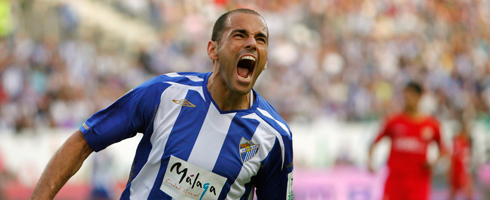It is a strange turn of events when the appointment of an assistant is more heavily debated than that of the first team Coach, but that is the situation Celta Vigo found themselves in this week.
On Monday Paco Herrera was sacked by the club after just under three years of service, in which he took them back to the Primera Division and lead a promising start to their first season back in the top flight. Former Atletico Madrid boss Abel Resino was swiftly announced as his replacement but it was the naming of Salva Ballesta as his number two that caused the most fuss.
The appointment of Ballesta, a controversial and outspoken figure, did not go down well with a number of Celta supporters, who on Monday morning took to social media to make their voices heard. Celta’s Ultras, the ‘Celtarras’, define themselves as anti-fascists and align themselves with the campaign for independence for Galicia and in the past have taken issue with Ballesta, who defines himself as a Spanish nationalist.
On Monday Ballesta was driving in his car from his home in Malaga towards Vigo when he got a call from Celta president Carlos Mourino to tell him ‘it wasn’t to be’.
In an interview with Radio Marca, Ballesta claimed the club had changed their mind because of: “political motives and pressure from a sector of the fans who do not agree with my idea of being Spanish.
“These days it's a shame to confuse politics with sport. I've never spoken about politics, I've always said that I feel Spanish.”
This was a strange statement coming from a player who, during his sporting career, barely ceased making his political views heard.
Former striker Ballesta enjoyed a varied career which saw him represent eight different clubs in Spain, plus Bolton Wanderers. He won the League title in 2001-02 with Valencia and the Pichichi award for the top scorer in La Liga in 1999-00 while playing for Racing Santander, but made just as many headlines for his off the field activities, above all his controversial declarations.
Born into a military family, Ballesta has never hidden his admiration for the Spanish armed forces, and in interviews has declared his non-sporting heroes were Joaquin Garcia Maroto, a nationalist pilot during the Spanish Civil War, and Hans Rudel, a German pilot who fought for the Nazis during the Second World War.
Such admissions did not go down well with many people, hardly surprising in a country that suffered a 36-year dictatorship following the nationalist victory in the civil war, but these are far from the only comments made by the former striker that irked Spanish football fans.
He has declared he ‘would like to meet’ Antonio Tejero, the lieutenant who lead a failed military coup in 1981, he called the Statue of Autonomy of Catalonia ‘an embarrassment’ and said former Barcelona full-back and Catalan nationalist Oleguer ‘deserved less respect than dog s***’.
Ballesta’s attitudes also manifested themselves on the pitch. He once provoked the ire of Osasuna fans while playing for Malaga at El Sadar by shouting ‘Viva Espana, you b******s’ at the club’s Basque nationalist Ultras.
He was not just badly received in Pamplona, and was greeted with the banner ‘Salva, please die’ when playing against Real Sociedad in Anoeta and chants of ‘Ballesta, a bullet in your head’ when playing against Celta in Balaidos three seasons ago with Albacete.
While one could argue all day about whether several regions in Spain should be distinct countries, it is difficult to deny that many regions have their own distinct culture and traditions. Galicia is one of those regions. It boasts its own language, spoken by over three million people, and although nationalism is not as prominent there as it is in Catalonia or the Basque country, pro-independence candidates receive around a fifth of votes in local elections.
Ballesta supports a centralised Spain and has shown little tolerance of local nationalism. In a debate about nationalism on TV programme Punto Pelota last year he declared: “If there is any Basque or Catalan who does not feel Spanish, they are f****d, because they were born in Spain.”
While Ballesta is entitled to his views, it should have come as little surprise to him that people of opposing views would not want him at their club. His controversial personality off the field has come back to haunt him and if he is to have a future as a Coach, he will have a limited choice of future employers.

